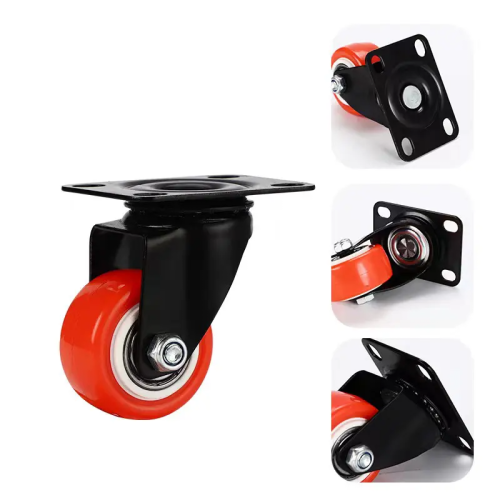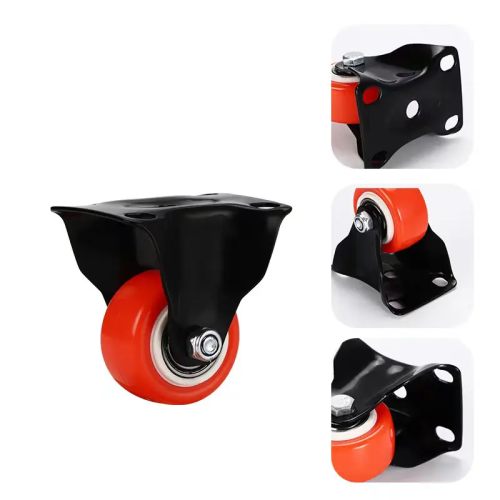Non-marking casters are integral to various industries, offering a versatile solution for the smooth and mark-free movement of equipment and machinery. To choose the right non-marking caster for your specific application, it’s essential to understand the various caster materials available and their corresponding applications. In this comprehensive guide, we’ll explore the key non-marking caster materials and their ideal uses.
1. Rubber Casters
Rubber casters are a popular choice in many industries due to their versatile properties. They are known for their shock-absorbing capabilities, which provide a cushioned ride and smooth maneuverability. Rubber casters offer good traction and are non-marking on most surfaces, making them suitable for various applications, including:
- Hospitals: Rubber casters are often used in medical equipment, as they offer quiet, smooth mobility and protect sensitive flooring.
- Laboratories: The shock-absorbing properties of rubber casters prevent equipment from transferring vibrations, ensuring precise measurements.
- Retail: Rubber casters on shopping carts and trolleys provide quiet, non-marking operation on store floors.
2. Polyurethane Casters
Polyurethane casters are prized for their durability, load-bearing capacity, and resistance to wear and tear. They are an excellent choice for heavy-duty applications that require long-lasting performance. Common applications for polyurethane casters include:
- Warehouses: These casters can handle heavy loads and are non-marking, making them suitable for pallet jacks and material handling equipment.
- Manufacturing: Polyurethane casters are used on machinery and equipment in industrial settings where robust load-bearing capacity is essential.
3. Nylon Casters
Nylon casters are known for their resistance to chemicals, moisture, and extreme temperatures. They are suitable for demanding environments, and their non-marking properties make them ideal for specific applications:
- Pharmaceutical Manufacturing: Nylon casters are used on equipment in pharmaceutical facilities, where cleanliness and chemical resistance are vital.
- Food Processing: These casters are non-marking and resistant to cleaning chemicals, making them a good fit for food industry equipment.
4. Urethane on Cast Iron Casters
Urethane on cast iron casters provide a combination of strength and floor protection. These casters are a versatile choice for numerous applications, including:
- Automotive Industry: Urethane on cast iron casters are used in automotive plants for vehicle assembly, offering durability and floor protection.
- Aerospace: These casters are employed in aircraft maintenance, repair, and assembly areas, where they protect hangar floors.
5. Stainless Steel Casters
Stainless steel casters are corrosion-resistant and well-suited for applications where cleanliness and hygiene are paramount:
- Pharmaceutical and Biotech: Stainless steel casters are used in cleanroom environments and laboratory equipment to prevent contamination.
- Food and Beverage: In food processing and commercial kitchens, stainless steel casters provide non-marking and rust-resistant mobility.
6. Pneumatic Casters
Pneumatic casters have air-filled tires that offer shock absorption and smooth movement. They are used in outdoor and rough terrain applications, such as:
- Golf Courses: Pneumatic casters on golf carts provide a smooth, non-marking ride on the greens.
- Landscaping and Construction: These casters are used on equipment like wheelbarrows and hand trucks in outdoor environments.
In conclusion, choosing the right non-marking caster material depends on your specific application and environmental requirements. By understanding the properties and ideal uses of different caster materials, you can select the perfect caster for your equipment, ensuring smooth, mark-free mobility while protecting your floors and enhancing the efficiency of your operations.


